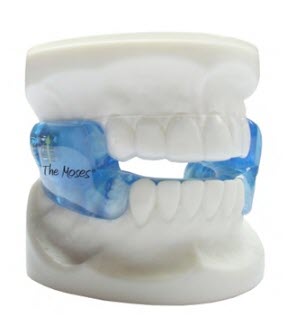How to Treat Your Sleep Apnea Without a Cpap
CONNECT WITH US:
Sleep apnea is a widespread disorder that is characterized by repeated breathing pauses while a person is asleep. Having untreated sleep apnea can both prevent you from getting a good night’s sleep and raise your risk of diabetes, heart failure, and other serious health problems.
What is Sleep Apnea
Obstructive sleep apnea occurs when the airway becomes blocked during sleep, causing a pause in breathing. The brain senses the lack of oxygen and sends a signal to wake up the sleeper, which restarts breathing. This can happen repeatedly during the night. In most cases, patients don’t realize they’re waking up so frequently.

THE IMPORTANCE OF SLEEP APNEA TREATMENT
Heart disease, obesity, high blood pressure, metabolic syndrome, and type 2 diabetes are just a few of the medical problems that people with untreated sleep apnea are at risk of. If you aren’t receiving the proper care, you could also be at a higher risk of stroke, depression, and car crashes caused by daytime fatigue.
Treatment Options for Sleep Apnea
There was a time when oral sleep apnea treatments were few and doctors recommended CPAP devices to treat sleep apnea. But these devices are big and made it difficult to sleep comfortably. Now, there are a few more alternatives you can utilize to stop your sleep apnea.
THE PROBLEMS WITH CPAP TREATMENT
The CPAP, or Continuous Positive Airway Pressure therapy, is one of the original treatment options for sleep apnea. This machine is typically used in patients with severe obstructive sleep apnea.
A CPAP device consists of a mask that fits over your face. This is connected to a tube, which extends to the machine placed by your bedside. The device introduces continuous air pressure to force the airway to stay open during sleep.
Although CPAP treatment is effective, it’s also problematic for many patients. It can be difficult to fall asleep with a mask on your face, and many people find it difficult to breathe comfortably. CPAP devices can be noisy, and they can cause dry mouth and throat, irritated eyes, skin sores, and even stomach bloating.
ALTERNATIVES TO CPAP MACHINES FOR SLEEP APNEA
You may be wondering what your options are for treating sleep apnea. CPAP is the most widely used treatment for the disorder, but many people find it difficult to use. Fortunately, there are many viable alternatives to CPAP. One of the most effective is called the Moses Oral Appliance. This device keeps your tongue from blocking the back of your throat and ensures that your airway stays clear while you sleep. The appliance is designed to be comfortable, and it doesn’t interfere with drinking, eating, or speaking as usual.
THE MOSES ORAL APPLIANCE 
Using sleep apnea mouth guards is a great way to help combat your sleep apnea, no matter if it’s mild, moderate, or severe. The Moses and other oral sleep appliances are customizable to your mouth, making for a better and more comfortable fit. These appliances position your lower jaw and tongue to set in a forward position. This position brings the tongue away from the back of the throat to open the airway for better breathing. These appliances tend to be a preferred method because there is no machinery involved, and it’s a more compact treatment option.
If the idea of using a CPAP device doesn’t appeal to you, talk to your dentist about alternative options. He or she may suggest an oral appliance for sleep apnea, such as the Moses oral appliance. An oral appliance will be fitted to your mouth for your comfort. You’ll wear it each night when you go to bed. The oral appliance will gently position your tongue and lower jaw forward a little to keep your airway open. This effectively eliminates the cyclical cessation of breathing that is characteristic of sleep apnea. By wearing the device every night, you’ll get a good night’s rest and you’ll enjoy better health. Plus, your partner won’t have to suffer through any more sleepless nights due to your snoring.
POSITIONAL THERAPY
Sometimes, all you need to prevent sleep apnea is a change in position. When you sleep, though, you don’t always have control over your movements. Thankfully, there are devices that can attach to the back of your neck that will alert you whenever you roll over. As you continue to sleep on your back—a bad position for sleep apnea sufferers—these devices will vibrate against your neck until you change your position.
About the Author – Dr. Thuy Nguyen, DDS
Dr. Thuy Nguyen DDS in Tukwila, WA holds a Bachelor of Science in Microbiology and received a Doctorate of Dental Surgery from the University of Washington. In 2011, she also completed the Progressive Orthodontic Program. She is known for her fine work and a friendly and caring attitude. Her enthusiasm for dentistry is contagious, as she designs and improves smile after smile. Dr. Nguyen is bilingual in English and Vietnamese. Dr. Nguyen has a keen eye for dental aesthetics and a talent for delivering unparalleled cosmetic dentistry.
